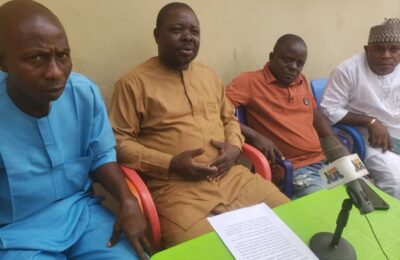A new executive dawn has been declared in Igala land as the UKOMU Igala Organization installs a fresh National Executive Committee (NEC) under the command of Major General James Ataguba (Rtd). Ratified on August 9, 2025, by the Board of Trustees led by Dr. Michael Idachaba, the appointments are designed to chart the course of the organization for the next four years. The formal inauguration is slated for September 6, 2025, at the NBA House, Abuja.
But behind the ceremony lurks a hard question: is this rebirth genuine, or merely another dance of ambition masquerading as service?
The new NEC parades impressive résumés — professors, retired generals, seasoned lawyers, and professionals. Names like Professor Lucy Ogbadu (Deputy National Leader), Navy Commodore Godwin Obaje (Rtd) (National Secretary), Chief (Hajia) Vivian Idama (Women Leader), and Jacob J. Usman, SAN (Legal Adviser) adorn the roster. On paper, this reads like a formidable corps. In reality, the Igala people remain skeptical, conditioned by years of betrayal and mediocrity.
The Igala nation has walked this path before: lofty names, loud ceremonies, and dead silence when the storm of responsibility arrives. Since 2015, Igala politics has degenerated into a wasteland of suspicion, selfish rivalries, and reckless opportunism. What was once a lion’s throne has been reduced to a shadowy stool occupied by men who confuse ego for leadership. As one elder in Ankpa lamented, “The rope that bound the Igala people has been slashed by knives of selfishness. We no longer roar as a lion; we squeak like rats in a broken barn.”
The selection of Major General Ataguba and his team is therefore not a trophy to be celebrated, but a mandate to be tested. The Igala nation does not need another ornamental council; it needs a war council of visionaries. As Dr. Ameh Abutu, a Lokoja-based analyst, bluntly put it: “Leadership that cannot reconcile its elites, galvanize its youths, and confront its enemies is no leadership — it is theatre.”
Indeed, critics argue that UKOMU has often been a theatre of hollow rhetoric. Its past indulgence in Zoom elections, elitist caucuses, and hollow communiqués has corroded its credibility. “How can a body dance in a closed room and call it a festival?” asked Mallam Musa Adaji of Igalamela/Odolu. “Leadership must be forged in the marketplace of the people, not whispered in the chambers of privilege.”
Still, the new appointments have cracked open a window of cautious hope. The pedigree of the current NEC suggests the possibility of discipline and gravitas. Yet pedigree alone does not build bridges; deliberate engagement does. Unless this council descends from its high tower to the grassroots, it will perish as another conclave of position seekers.
The way forward requires brutal honesty. UKOMU must exorcise the demons of ego, nepotism, and tokenism. It must convene an uncompromising reconciliation of the fractured Igala elite, enlist its restless youths, and draft a pragmatic roadmap for political recovery in Kogi State. Anything short of this is betrayal.
The Igala proverb warns: “A masquerade that dances only for itself soon collapses in disgrace.” The time for insular leadership is over. The Igala nation is starved — starved of jobs, starved of development, starved of political dignity. What it demands now is substance, not symbolism.
Reverend Anthony Onoja of Idah framed it starkly: “Leadership without truth is like a masquerade without a mask. It deceives no one.” His words mirror the collective impatience of a people tired of speeches and ceremonies.
The September inauguration will therefore be judged not by its pomp but by its aftermath. If UKOMU uses this moment to stitch together the torn fabric of Igala politics, history will record it as a rebirth. If it squanders it, history will dismiss it as another assembly of empty titles.
The Igala people wait — wary, restless, but hopeful — echoing a proverb etched in their soul: “When the drummer changes the beat, the dancer must change the steps.” The beat has changed. The burden is now on UKOMU’s new leadership to match its steps with destiny, or be remembered as another wasted chapter in a nation’s struggle for relevance.
– Inah Boniface Ocholi writes from Ayah – Igalamela/Odolu LGA, Kogi state.
08152094428 (SMS Only)




